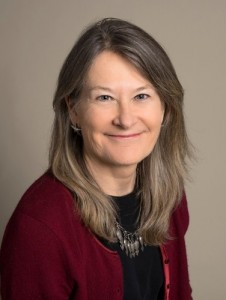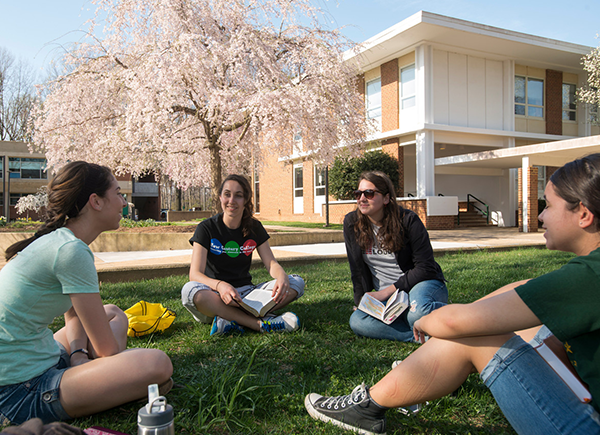“Not one word, not one gesture of yours shall I, could I, ever forget…”
– Leo Tolstoy, Anna Karenina
Summer courses are a great way to stay on track or even get ahead with academic goals, and an online format allows Mason students to take courses from anywhere. Whether you’re a local, out-of-state, or international student – or even traveling or on vacation – you can take online courses in your own time, from wherever you may be.

For students enrolled in FRLN 330: Topics in World Literature, the flexibility of online learning is only one of the many benefits. Dr. Christensen and her students spend five weeks diving into one of Leo Tolstoy’s most famous works, Anna Karenina, and it is clear that her students come away with more than just a fulfilled Mason Core requirement.
“This is a great general education course, and students truly learn a lot about literature,” says Dr. Christensen. “All students do well, and very few have taken this course and not ended up enjoying and really getting into the work.”
So, what elements make this the ideal summer course?
Challenging Content
As she only has five weeks of May and June to cover a novel full of rich cultural references and influential literary themes, Dr. Christensen sets clear expectations from the start. She organizes her Blackboard course in an intuitive and accessible way, and she spends the first week acclimating her students to the novel. Despite the fast pace of a summer session, Dr. Christensen aims to give her students the tools to read a text carefully and thoughtfully.
With an English translation as close as possible to the original Russian, she sees Anna Karenina as an excellent opportunity to teach students about Tolstoy’s background and to explore how the Russian language works. Given the complex content and compact timeline, Dr. Christensen maintains a consistent presence throughout the course to help students master an understanding of the material. She provides lecture videos, weekly individual feedback, and online multiple choice quizzes to engage students and ensure their success.
She shares, “With such a tight schedule, students must read carefully, and that can be a big challenge. But it’s such a great book, and they are able to get into a habit to meet the same requirements each week. If they know what’s expected, they do well.”
Meaningful Connections
Spending most of their time interacting with one another through discussions and group work, all 35 of Dr. Christensen’s students introduce themselves during the first week. They are randomly placed into small groups to collaborate on prompted questions, and these groups change each week to allow all students the chance to work together. This promotes a more personalized and thoughtful discussion when coming together as one large group for the final week of class.
“Online, students really have the chance to learn how to be good conversationalists. I incorporate asynchronous discussions so that my students can contribute wherever and whenever they have the time,” says Dr. Christensen. “They never have to come to campus, they just have to maintain a presence throughout the course. I’ve had students participate from Europe, California, and all different time zones.”
A Passionate Professor
Perhaps the most enjoyable part of the course is Dr. Christensen’s passion for the subject. Because most of this course is built and doesn’t require extensive updating, she looks forward to it each year as she is able to focus entirely on teaching and engaging with her students. With changes to curricula and class flow, this cannot always be accomplished in a traditional face-to-face setting. As with Tolstoy’s quote above, Dr. Christensen teaches this course with the hope that it instills a passion in her students, inspiring them for semesters to come.
“Sometimes it takes a great course to spark a student’s interest in literature, and this course can do that. I love what Tolstoy brings out in readers. He really makes them think, and I see such intelligent work and improved writing from my students,” shares Dr. Christensen. “Every year I think maybe they won’t like [Anna Karenina], but every year they get into it. I hope to teach this course every summer for as long as I can.”

Did you know that all Mason students must complete the Mason Core general education requirements? Try FRLN 330 (Anna Karenina) with Dr. Christensen this summer – it is currently the only online course that fulfills the 3-credit Literature requirement!
For more information on available online courses, visit https://live-web-gmu.edu.help/courses/.
 Mason Online
Mason Online